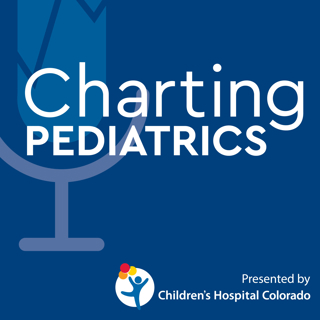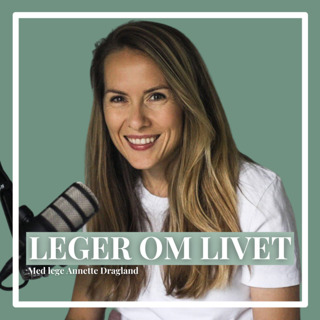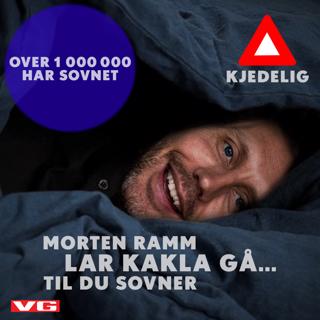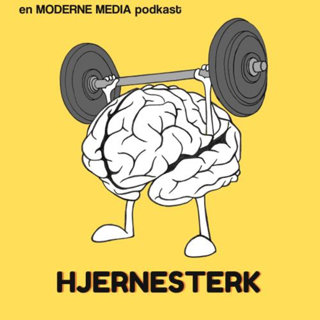
Racial Disparities Postpartum
The United States has the highest rate of maternal deaths among high-income nations and women of color, are disproportionately affected. For Black women in this country, the rate jumps from 22 deaths with every 100,000 births to 50 deaths for every 100,000 births. When it comes to postpartum depression, these same women are several times more likely to suffer, but less likely to receive treatment. To understand these disparities and discuss ways to combat them, we are joined by three experts. Shaleah Dardar, MD, and Brigitte McClellan, PsyD, specialize in child and adolescent psychiatry at Children’s Hospital Colorado and are both assistant professors at the University of Colorado School of Medicine. Whitney Dunlap is a lactation consultant and health educator. Some highlights from this episode include: Barriers and biases that put Black mothers and their babies at a disadvantage How primary care providers can create a safe space for parents to be vulnerable The overlap of adult care and newborn care during post-partum For more information on Children’s Colorado, visit: childrenscolorado.org.
17 Des 202433min

Caring for Kids in Conflict
Pediatric providers around the world are focused on helping sick children — finding cures, creating new treatment options and developing innovative techniques to improve care. But when it comes to conflict zones and border areas, there are fewer doctors available to protect the health of vulnerable children. Paul Wise, MD, MPH, is a physician who has dedicated his career to taking on that complex and sometimes daunting problem, working to improve and reform systems so that no child suffers needlessly. Dr. Wise has served as the Juvenile Care Monitor for the U.S. Federal Court, overseeing the treatment of migrant children in the United States detention system. He’s also served as the senior advisor to St. Jude Global’s SAFER Ukraine collaborative since 2022, and he’s supported international work in Gaza, Central America and Venezuela. As a professor and fellow of multiple disciplines at Stanford University, he is dedicated to bridging the fields of child health equity, public policy and international security studies. He is also Co-Director for the Stanford Center for Prematurity Research. He has served in a variety of professional and consultative roles, including special assistant to the U.S. Surgeon General. Some highlights from this episode include: A discussion of Dr. Wise’s experiences at the southern border and how they shaped his care recommendations for migrant children. A global understanding of what children face in unstable environments like border areas and war zones. A close look at what changes have already been implemented at local, national and international levels to better protect vulnerable children. Suggestions on the role primary care providers can play in making conflict zones around the world safer for children in need. For more information on Children’s Colorado, visit: childrenscolorado.org.
10 Des 202437min

100 Years of Children’s Rights
2024 marks 100 years since the Geneva Declaration of the Rights of the Child. In the aftermath of World War I, this declaration called for universal attention to the needs of children, including their health. A century later, we’ve made progress, but children still face vast challenges here in the United States and around the world. How can we advance the global cause of children’s health? In this episode we talk to one of the world’s foremost ambassadors for this work about the struggles and opportunities facing children’s healthcare. Professor Ann Skelton is a renowned children’s rights expert and Chair of the UN Committee on the Rights of the Child. She is a professor of law at the University of Pretoria and Leiden University, as well as a visiting professor at the University of Oxford and the University of Strathclyde. Some highlights from this episode include: A look into Ann Skelton’s work The current state of children’s rights in the U.S. and around the world The challenges facing children’s healthcare and how health advocacy can help change that Tangible opportunities to engage in to ensure all children have access to the healthcare they need For more information on Children’s Colorado, visit: childrenscolorado.org.
3 Des 202430min

Support for Post-Partum Depression
Bringing a baby into this world is the start of many significant changes, yet one change that some families may not anticipate is post-partum depression (PPD). This condition affects more than the parent’s wellbeing, it can impact children and other family members too. About one in five new parents experience mood or anxiety concerns during pregnancy or after delivery, making maternal mental health conditions the most common complication of pregnancy and childbirth. While 80% of them will fully recover, setting them up for success can start in the pediatric primary care setting. To understand how primary care providers can help support parents with post-partum depression, we are joined by two experts for this episode. Celeste St. John-Larkin, MD, specializes in child and adolescent psychiatry at Children’s Hospital Colorado and is an associate professor of child psychiatry at the University of Colorado School of Medicine. She is also The Anschutz Chair in Perinatal Mental Health. Kelly Glaze, PsyD, is a psychologist at Children’s Colorado and an assistant professor of child psychiatry at the University of Colorado School of Medicine. Some highlights from this episode include: How long parents are at risk of PPD after birth The difference between PPD and baby blues How primary care pediatricians can support the adults alongside their kids How to navigate support after giving birth For more information on Children’s Colorado, visit: childrenscolorado.org.
26 Nov 202424min

Top CEOs Provide Pediatric Insight
From startups to global corporations, CEOs have the power to make immense strides in any respective industry. In pediatric medicine, they drive advancements in child health through high-quality care, coordinated programs, education, research and advocacy. While providers are working directly with patients, these leaders are preparing the infrastructure for success while pushing us to reimagine healthcare. It’s because of them, institutions like Children’s Hospital Colorado and Nationwide Children's remain among the top 10 pediatric hospital systems in the country. In this episode, we go beyond the white coat by sitting down with two of the most influential CEOs in pediatrics. Jena Hausmann is the President and CEO of Children’s Colorado and Tim Robinson is the CEO of Nationwide Children’s. Under Jena’s leadership, Children’s Colorado has been recognized nationally and internationally for our medical, research and advocacy programs. Jena has been a champion for increasing research and innovation and improving pediatric mental health. Tim’s leadership has helped transform Nationwide Children’s from an important regional children’s medical center into an internationally prominent academic healthcare system. Nationwide has become a model for how a hospital system can improve neighborhoods, increase health care access in rural communities, drive innovation and pioneer economic development. Some highlights from this episode include: The career path of working in healthcare to becoming a CEO How pediatric healthcare has evolved and where it’s going The current challenges and threats to the healthcare landscape The importance of children’s hospitals partnering with community providers For more information on Children’s Colorado, visit: childrenscolorado.org.
19 Nov 202425min

Can We Prevent Congenital CMV?
The most common congenital viral infection in children is cytomegalovirus infection (CMV). Oftentimes the mother will experience little to no symptoms, but the virus can significantly affect the newborn, with outcomes ranging from no symptoms to severe systemic and intercranial complications. What if we could prevent this infection all together with a vaccine? A candidate MRNA vaccine against CMV has elicited promising immune responses to date and is on a pathway towards FDA approval. To learn more about this treatment, we are joined by one of the nation’s leading experts in vaccine development for the prevention of congenital viral disease. Sallie Permar, MD, is the Nancy C. Paduano Professor and Chair of Pediatrics at Weill Cornell Medicine. She serves as pediatrician-in-chief at New York-Presbyterian/Weill Cornell Medical Center. She is also a professor of immunology and microbial pathogenesis at the Weill Graduate School of Medical Sciences. Some highlights from this episode include: The scale of impact of congenital CMV in children Understanding how the virus originates with the mother and affects the baby Where the CMV vaccine stands in the vaccine development process Strategies for educating the public and primary care providers on this new treatment For more information on Children’s Colorado, visit: childrenscolorado.org.
12 Nov 202434min

When is a Bloody Nose Concerning?
As a child, a nosebleed can be painful and embarrassing. Surprisingly, it’s also something primary care providers run into often in their practices. While the great majority of nosebleeds, also called epistaxis, are limited in severity and duration, about 6% of people who experience them will seek medical attention. Interventions range from self-treatment and home remedies to more intensive procedural options and medications. Why are we seeing so many cases of epistaxis in our offices? What is causing the onset of these nosebleeds, and are environmental changes a culprit? To explore the intricacies of epistaxis, we are joined by Jeremy Prager, MD. Dr. Prager specializes in otolaryngology at Children’s Hospital Colorado and is a Professor of Otolaryngology at the University of Colorado School of Medicine. Some highlights from this episode include: How to differentiate between a nosebleed and a more severe epistaxis diagnosis. The importance of partnership between the specialist and the primary care provider to properly care for a nosebleed. The most common causes of a nose bleed in children by age. How to support patients when outpatient management isn’t working. For more information on Children’s Colorado, visit: childrenscolorado.org.
5 Nov 202423min

Addressing Neurologic Conditions with Precision
One of the great medical accomplishments of our time is the evolution of precision medicine. The ability to understand a patient’s unique genetic profile has become more accessible to our patients, and now, there are multiple mechanisms for using that information to overcome disease. One of the specialties leading the way in precision medicine is pediatric neurology. According to the World Health Organization, more than one in three people are affected by some type of neurological condition. They are a leading cause of ill health and disability worldwide. This subset of precision medicine will not only help us decrease those numbers but also allow us to treat some of these conditions in ways we have never done before. To detail this exciting work, we’re joined by two experts. Scott Demarest, MD, and Julie Parsons, MD, are both pediatric neurologists at Children’s Hospital Colorado and faculty at the University of Colorado School of Medicine. Dr. Demarest focuses on rare epilepsy conditions, and Dr. Parsons specializes in neuromuscular disease. Dr. Demarest is the Clinical Director of the Precision Medicine Institute at Children’s Colorado. Some highlights from this episode include: Understanding precision neurology within the context of precision medicine Why precision neurology positively impacts diagnosis and treatment options How families are more easily accessing important genetic testing The role primary care providers play with caring for these rare diseases For more information on Children’s Colorado, visit: childrenscolorado.org.
29 Okt 202431min




















